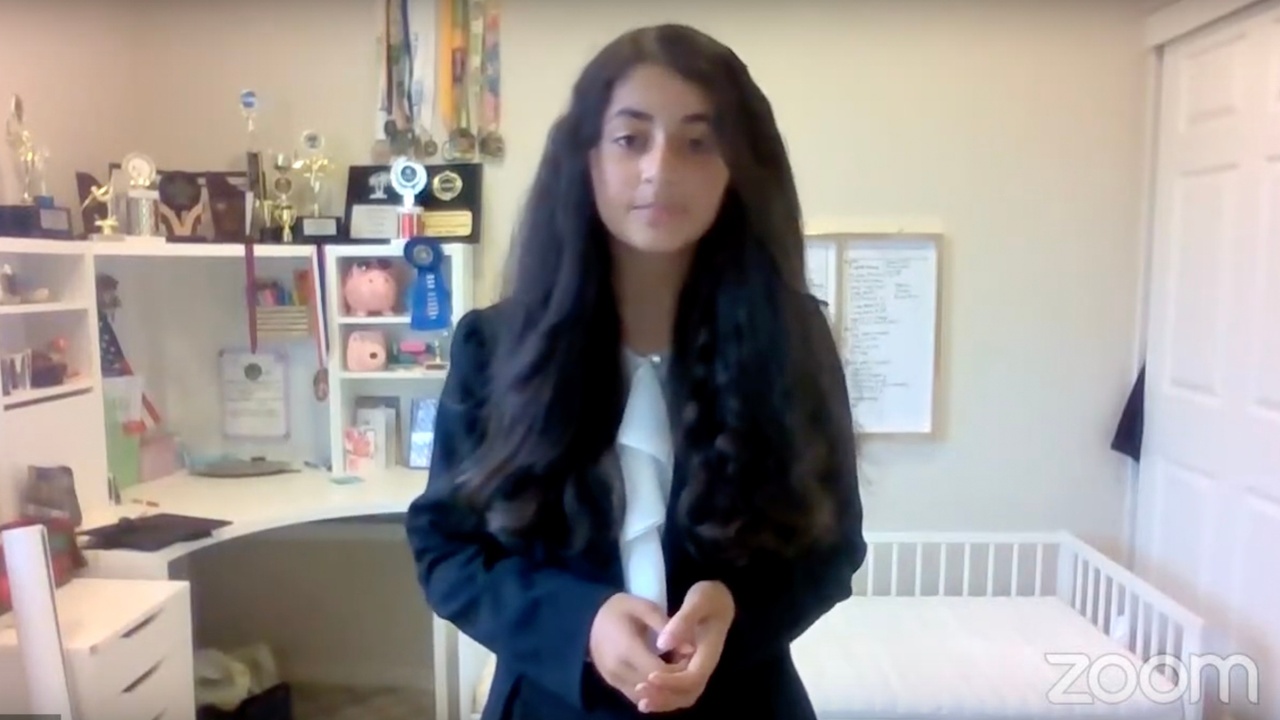Three Tips to Overcome Obstacles in Original Oratory
Aug 10, 2022
Whether it's the 2020 NSDA-China national champion, three 2021 NSDA-China national finalists, or three 2022 NSDA middle school national finalists (including the national champion), ModernBrain has a history of excellence in cultivating standout orators. While many of our coaches were oratory champs in their day, we refuse to write students' speeches for them; while it could lead to short-term success, it destroys the integrity of the category and doesn't develop long-term skills.
How, then, have we been able to engender such consistently excellent results? It's simple: innovation. We're always thinking outside the box and developing new exercises to help our orators refine their messages. Here are three tips we've found are useful across different age groups and experience levels.
#1: Challenge your contentions.
Most successful oratories follow the problem-cause-effect-solution structure. They decide on something that's wrong with society (their problem, or key concern), detail why the problem exists, explain the effects (or harms) of not addressing it, and then provide some solutions. There are two big problems with many of these speeches: first, their key concern might not seem important enough at face value to their judges relative to their competitors' topics; second, their solutions might not solve their causes. For instance, if competitor A chooses a speech concerned with why we're not civil enough, and competitor B makes their speech about why we oversimplify complex issues, which one is more important? And if competitor A suggests a reason we're not civil enough is because of political tribalism, do they sufficiently address political tribalism in their solutions?
To resolve this, we have competitors challenge their topic and contentions in the SPAR (spontaneous argumentation) format. They must affirm the idea that their topic is the most pressing social issue to tackle (for example, "Resolved: our lack of civility is the most pressing social issue to fix"). Their coach or their classmates negate the topic and challenge the solvency claims made by the affirmative (the topic's proponent). This way, speakers can think of a wider range of examples and broaden their analysis to hold up to scrutiny.
TIP #2: Transform your tones.
There's a simple way of describing an oratory's five-part tonal arc: fun, smart, intense, inspirational, and proud. The competitor grabs the audience's attention in the introduction (fun), astounds the crowd with clever analysis in the causes (smart), pulls on their heartstrings and persuades them of their topic's urgency in the effects (intense), convinces them to change things (inspirational), and concludes in a satisfactory, powerful way (proud).
Some competitors struggle with this idea in practice, even when they understand it in the abstract. That's why we use fun drills to help them switch it up. For example, they might be asked to seem "intense" during the introduction (even the sentences that are written in comedy in mind) and "proud" during the effects section (even the parts that are tragic and written to be "intense"). This exercise helps students differentiate their delivery between the sections.
TIP #3: Warp your wording.
It's easy to get bored with your oratory partway through the season. That's why we play the synonym game: students are asked to deliver their memorized oratory, sentence by sentence, but are not allowed to repeat any of the unique words in a given sentence. For example, "That's why we can't support cruelty" could be changed to "There's a reason brutality cannot be tolerated." The speaker should record themselves as they spontaneously rephrase their speeches; in some instances, the restated sentences might be better than their originals.
Additionally, speakers should find one "flexible" part of their speeches (typically, one of their "effects"). The section should be updated based on major news stories that connect to their topic area. For example, a national finalist we worked with had a section of their speech that began as a reference to the January 6th riots and became a connection to social media reactions to Russia's invasion of Ukraine.
If you follow these tips, you'll get over both writer's block and performance paralysis. To learn about how to best apply these techniques and more, sign up for a Zoom meeting using the link below!


